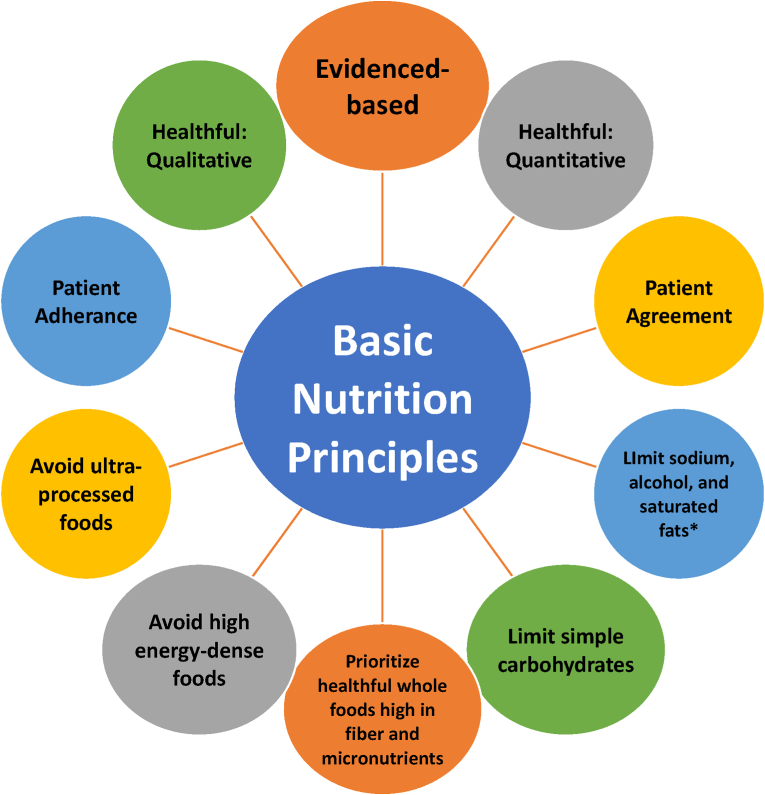Fig. 10.
Basic healthful nutrition principles [112,113]. Dietary principles that apply to patients with obesity without diabetes mellitus are similar to nutritional recommendations for patients with obesity and type 2 diabetes mellitus (T2DM), as well as similar to nutritional interventions for patients with other potential adiposopathic conditions such as high blood pressure, dyslipidemia, and/or cardiovascular disease and cancer. Prescriptive dietary recommendations should be evidenced-based [3] and be healthful both qualitatively and quantitatively. Nutritional recommendation should be sufficiently patient-centered and culturally sensitive as to facilitate patient agreement and adherence [113,[124], [125], [126]]. In general, patients should avoid ultra-processed, high energy-dense foods, limit sodium, alcohol, and simple carbohydrates. Conversely, it is generally more healthful to prioritize whole foods that are high in fiber and micronutrients (e.g., whole fruits and vegetables). Especially in patients with diabetes mellitus, complex carbohydrates are preferred over simple carbohydrates, which often have a higher glycemic index/load.
∗ Many natural foods contain varying amounts of saturated, polyunsaturated, and monounsaturated fat. The data regarding the relationship of saturated fat-containing dairy products and cardiovascular disease is inconsistent and may be related to the size of the component fatty acids (i.e., number of carbons). Dairy food intake is often a component of “healthful” diets, such as the Mediterranean Diet. Additionally, most studies supporting saturated fats as unhealthful (e.g., especially regarding increased cardiovascular disease risk) evaluated isocaloric substitution for other nutrients as opposed to health effects of different types of saturated fats during clinically meaningful weight reduction. Weight reduction via carbohydrate restricted nutritional intervention in patients with pre-obesity or obesity, and pre-diabetes or T2DM, may contribute to improvement or remission in diabetes mellitus, reduction in high blood pressure, and improvement in blood lipids such as triglycerides and high-density lipoprotein cholesterol. That said, patients with genetic dyslipidemias, or patients with increased intestinal cholesterol absorption with weight reduction, may experience moderate to marked increases in low-density lipoprotein cholesterol with carbohydrate restriction, which if excessive or uncontrolled, may suggest the need to replace saturated fats with poly or monounsaturated fats and restrict dietary intake of dietary cholesterol, or perhaps consider medications such as cholesterol absorption inhibitors (e.g., ezetimibe) or statins [112].

